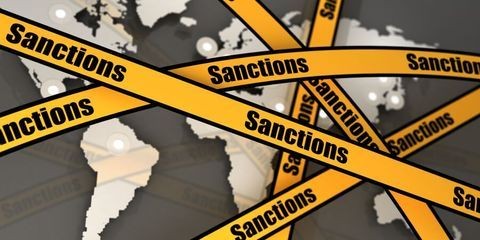FCA Settlement Offers Reminder of the Importance of TAA and PRC Compliance
Client Alert | 2 min read | 12.21.22
The Department of Justice has announced a $14 million False Claims Act (FCA) settlement with Coloplast, a medical product manufacturer, after Coloplast self-disclosed violations of the Trade Agreements Act (TAA) and Price Reduction Clause (PRC) while under contract with the Department of Veterans Affairs (VA). The TAA requires contractors to furnish end products that are U.S.-made or “substantially transformed” in designated countries. Coloplast disclosed that it misapplied the substantial-transformation standard, causing Coloplast to report incorrect countries of origin for products and to improperly retain certain products on contract after manufacturing moved to non-designated countries. Coloplast also disclosed that it overbilled the Government by failing to provide the VA with discounts pursuant to the terms of the PRC, which normally requires tracking discounts offered to designated commercial customers and offering corresponding downward price adjustments to VA customers.
Clearly, Coloplast did not dispute that it had violated the TAA and PRC clauses in its contract with the VA. Unclear, however, are (1) to which government authorities Coloplast directed its self-disclosures and (2) whether Coloplast made those disclosures pursuant to the Mandatory Disclosure Rule applicable to government contractors. See FAR 52.203-13(b)(3). Also unclear is whether Coloplast received any credit in the settlement for having made these disclosures and for any subsequent cooperation it provided, pursuant a DOJ policy designed to encourage and reward self-disclosures and cooperation in FCA cases. The policy, announced in 2019 and codified in the Justice Manual at § 4-4.112, provides for maximum credit in the form of a single-damages cap where companies, among other things, timely self-disclose FCA violations, fully cooperate with any ensuing investigation, and take remedial measures designed to prevent and detect similar wrongdoing in the future.
Key Takeaways:
- To avoid draconian sanctions under the False Claims Act, contractors subject to the TAA and PRCs should establish robust compliance programs to ensure TAA and PRC monitoring throughout the term of any contracts that include those requirements. Retroactive compliance reviews or audits are important for detecting potential issues, but may not be sufficient to avoid FCA liability even when contractors self-disclose potentially noncompliant conduct.
- DOJ’s application of its False Claims Act disclosure and cooperation policy remains murky at best, leaving in question whether government contractors and others can rest assured that they will receive real “credit” under the policy when its disclosure, cooperation and remediation requirements are met.
Insights
Client Alert | 14 min read | 05.03.24
On April 24, 2024, President Biden signed into law the National Security Supplemental fiscal package, which includes significant new sanctions and export controls authorities. Although the U.S. foreign aid commitments for Ukraine, Israel, and Taiwan headline the new law, it also (1) expands the statute of limitations for U.S. sanctions violations; (2) includes new authorities for the President to coordinate sanctions efforts with the European Union and the United Kingdom; (3) expands sanctions and export controls on Iran (including some targeted at Chinese financial institutions); and (4) includes new sanctions authorities targeting terror groups.
Client Alert | 3 min read | 05.03.24
EEOC’s New “Enforcement Guidance on Harassment in the Workplace” Hits Hot-Button Issues
Client Alert | 11 min read | 05.03.24
FDA Moves Forward on Laboratory Developed Tests while Stakeholders and Congress Weigh Next Steps
Client Alert | 1 min read | 05.03.24






